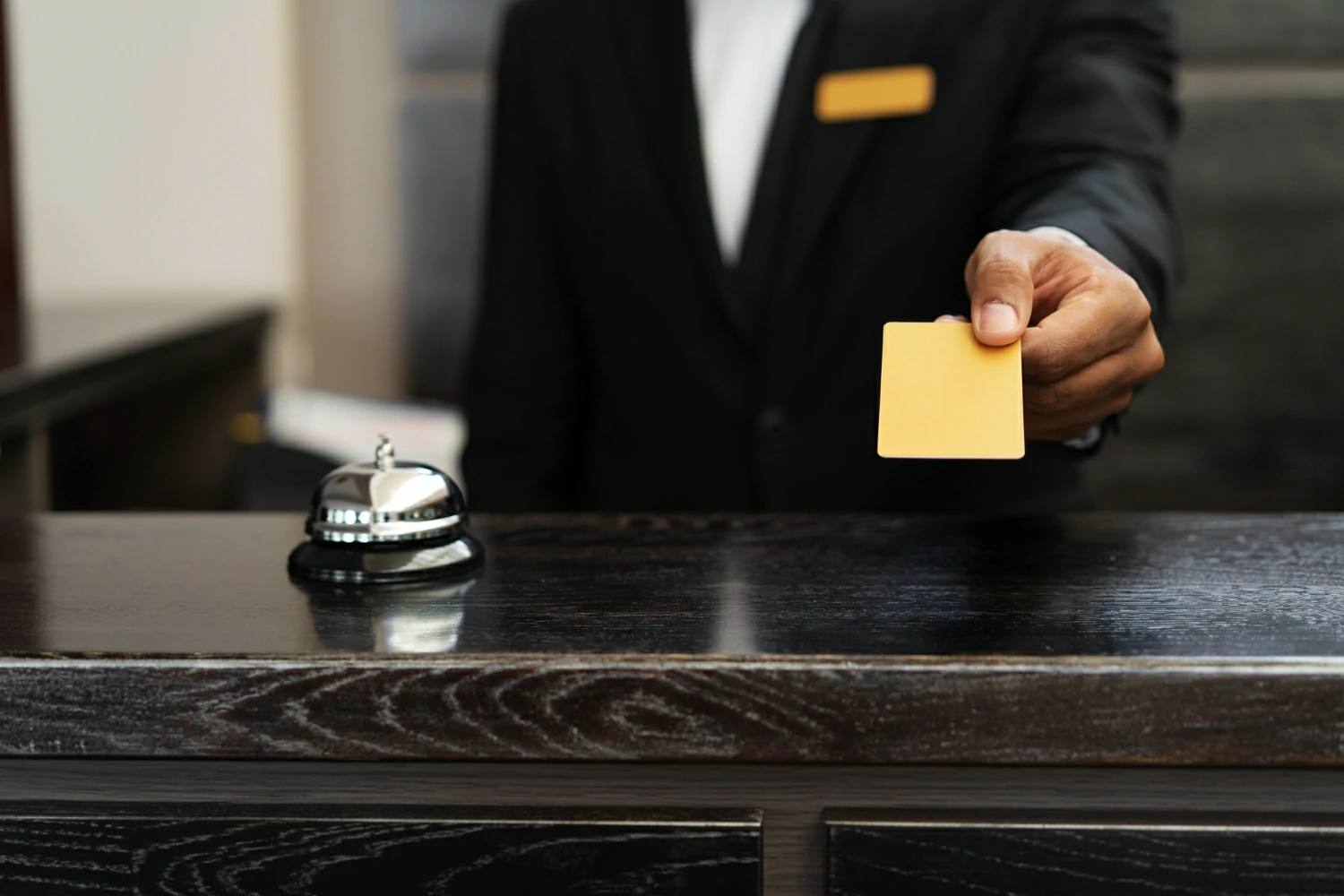What happens if you dispute a hotel charge? Answer is – When you dispute a hotel charge, you initiate a process with your credit card company or bank. They’ll investigate the claim and contact the hotel to get their side of the story. Depending on the evidence and reason for the dispute, you may be able to get a refund or have the charge removed. However, the hotel also has the right to provide evidence supporting the charge’s validity. Ultimately, your bank or credit card company determines the outcome of the dispute.
Summary
- Disputing a hotel charge begins a formal process with your bank or credit card company.
- The reasons for disputing a charge can include unauthorized transactions, incorrect amounts, double billing, or dissatisfaction with services.
- Your bank will investigate, gather evidence from both sides, and make a final decision.
- Success in a dispute depends on providing compelling evidence supporting your claim.
- Be aware of the deadlines and rules associated with filing a dispute.
What happens if you dispute a hotel charge?

You’ve returned from a relaxing vacation, only to find an unexpected charge on your credit card statement from the hotel.
It could be an extra night you hadn’t booked, a mysteriously inflated room rate, or a charge for amenities you never used. This is where a hotel charge dispute can help you protect your hard-earned money.
What is a hotel charge dispute?
A hotel charge dispute is a formal process you initiate with your credit card company or bank when you believe a charge on your hotel bill is incorrect, unauthorized, or otherwise unfair.
By disputing the charge, you’re essentially asking your financial institution to investigate and potentially reverse the transaction.
Common reasons for disputing a hotel charge
There are several legitimate reasons why you might consider disputing a hotel charge. Here are some of the most common scenarios:
Unauthorized charges: Sadly, fraudulent charges can happen during hotel stays. Perhaps someone has used your credit card information without permission to make purchases at the hotel or book additional rooms.
Incorrect charges or double billing: Honest mistakes happen. You might find that you’ve been charged for the wrong room type, billed twice for the same service, or charged for a night you didn’t stay.
Billing for services you did not receive: Some hotels try to slip in fees for amenities or services that you didn’t explicitly request or use, such as the minibar, Wi-Fi, or gym access.
Dissatisfaction with the services provided: While more subjective, disputing a charge based on poor service quality can sometimes be valid. If your room was significantly not as advertised, there were major cleanliness issues, or promised amenities were unavailable, you might have grounds for a dispute.
Sarah Peterson Expert Opinion
Sarah Peterson, a consumer rights advocate at Fair Billing Solutions, emphasizes the importance of reviewing your hotel bill carefully: “Many people simply pay their hotel bill without a second glance. However, taking the time to scrutinize every item can save you from unexpected and potentially unfair charges. Don’t hesitate to dispute anything that seems off.”
The Process of Disputing a Hotel Charge

Disputing a hotel charge may seem daunting, but understanding the process can empower you to take action. Here’s a breakdown of the key steps involved:
1. Contact your credit card issuer or bank
The first and most crucial step is to contact your credit card issuer or bank as soon as you notice a discrepancy on your hotel bill. Here’s how to get started:
Find the Contact Number: Check the back of your credit card or your bank’s website for their customer service number. Many financial institutions have dedicated phone lines for billing disputes.
Be Prepared to Explain: Have your account information, the disputed hotel charge details, and any supporting documentation ready (more on this later). Explain the situation clearly and concisely to the customer service representative.
Ask about Deadlines: Each bank or credit card company has specific deadlines for filing a dispute. It’s generally best to act quickly. The Fair Credit Billing Act gives you 60 days from the date your statement is mailed to dispute a charge, but some issuers may offer longer periods.
Deadlines for filing a dispute
As mentioned above, deadlines for filing a dispute are essential. Missing the deadline could mean you lose the right to contest the charge.
Make sure to ask your bank or credit card company about their specific timeframe and adhere to it strictly.
Information and documentation needed
To strengthen your case, gather as much evidence as possible. Here’s what you might need:
Your Hotel Bill: A copy of your itemized hotel bill highlighting the disputed charge.
Booking Confirmation: Your original booking confirmation showing the agreed-upon room rate, dates of stay, and included amenities.
Communication with the Hotel: Any emails, letters, or notes from conversations with hotel staff where you attempted to resolve the issue.
Photos or Videos: If your dispute relates to the condition of the room or hotel facilities, any visual evidence can be helpful.
Relevant Policies: If the dispute is about resort fees, cancellation policies, or other charges, refer to the hotel’s published policies.
Mark Stevens Expert Opinion
Mark Stevens, a financial advisor specializing in consumer protection, stresses the importance of documentation: “The more evidence you can provide to support your dispute, the better your chances of success. Think of yourself as a detective gathering clues to prove your case to your credit card company.”
2. The Investigation

After you’ve contacted your financial institution and filed a formal dispute, they’ll launch an investigation into your claim. This is where things get interesting – let’s break down what happens behind the scenes:
What the bank investigates
Your credit card company or bank will meticulously examine the information you’ve provided alongside the hotel’s response and any supporting documentation. Some key points they’ll focus on include:
Validity of the Charge: The bank will verify whether the disputed charge aligns with your booking confirmation, the hotel’s advertised rates, and standard practices.
Authorization: If you’re claiming an unauthorized charge, they’ll investigate whether there’s evidence of your signature or proof that you initiated the transaction.
Double Billing: They’ll check for duplicate charges or billing errors for the same service.
Services Rendered: The bank will compare the disputed charges with your booking details to confirm if they match the agreed-upon services and amenities.
Communication: They will review your communication history with the hotel to understand if efforts were made to resolve the issue amicably.
The hotel’s role in the process
The hotel will receive notification from your credit card company or bank regarding the dispute. They’ll have the opportunity to provide their perspective and counter-evidence to refute your claim. The hotel is likely to submit:
Transaction Records: Details of the disputed charge, including itemized receipts and any signed authorization forms.
Internal Policies: Relevant sections from their terms and conditions, cancellation policies, or documentation outlining any additional fees.
Staff Accounts: Statements from hotel staff members involved in your stay or the transaction in question.
Evidence both parties can provide
To maximize your chances of success, providing a comprehensive evidence package during the initial dispute filing is essential. Here’s the type of supporting documentation both you and the hotel might use:
Booking Confirmations & Contracts: Any written agreements regarding rates, amenities, and other stay-related details.
Receipts and Bills: Original receipts for hotel charges, restaurant meals, spa treatments, etc.
Emails and Letters: Correspondence with the hotel regarding booking, complaints, or attempts to resolve the issue.
Photos and Videos: Visual evidence of room conditions, facilities, or incidents supporting your dispute.
Witness Statements: If applicable, statements from other guests or individuals present during any relevant interactions with hotel staff.
Jennifer Thompson Expert Opinion
Jennifer Thompson, a travel industry consultant and former hotel manager, sheds light on the hotel’s perspective: “Hotels take charge disputes seriously, as they can impact their revenue and reputation. While the goal is to reach a fair resolution, the hotel will naturally work to defend the validity of its charges.”
3. The Decision

After a thorough investigation, your credit card company or bank will reach a decision regarding your disputed hotel charge. Here’s what goes into their decision-making process and what you can expect:
How the bank makes a decision
The bank or credit card company will meticulously weigh the evidence presented by both you and the hotel. They’ll consider the following factors:
Terms and Conditions: They’ll verify whether the disputed charge is consistent with the hotel’s published policies and your booking agreement.
Authorization: In cases of fraudulent charges, they’ll look for proof of authorization to determine who initiated the transaction.
Services vs. Expectations: They’ll assess whether the charges align with the services you were supposed to receive based on your booking and any advertised amenities.
Communication Efforts: They’ll judge if there was a reasonable attempt to resolve the issue amicably with the hotel before the dispute was filed.
Credibility of Evidence: The bank will determine the strength and reliability of the documentation supporting both your claim and the hotel’s defense.
Possible outcomes of the decision
There are a few potential scenarios once your credit card company or bank reaches a decision:
Decision in Your Favor: If the bank finds your dispute to be valid, they’ll reverse the disputed charge. You’ll receive a credit for the disputed amount on your account, essentially getting your money back.
Decision in the Hotel’s Favor: If the bank determines that the hotel’s charge was legitimate, you’ll still be liable for the payment.
Partial Refund: In some cases, the bank may find that a partial refund is warranted. This might happen if only a portion of your dispute is deemed valid.
Further Investigation: Occasionally, the evidence may be inconclusive, leading the bank to request additional information from both parties or extend the investigation period.
Alex Baker Expert Opinion
Alex Baker, a consumer rights attorney, stresses the significance of the decision: “The outcome of your hotel charge dispute can have financial implications and influence your credit card usage. If successful, it reinforces your rights as a consumer against unfair charges. If not, it’s a valuable lesson on the importance of scrutinizing your bills and understanding your booking terms before your next trip.”
Tips for Successfully Disputing a Hotel Charge

1. Documentation
Documentation is your best friend during the dispute process. Meticulous record-keeping can make or break your case. Consider it the evidence that will convince your credit card company or bank of the validity of your claim.
The importance of documentation
Thorough documentation demonstrates a clear timeline of events, provides proof of your claims, and strengthens your overall argument. Without solid evidence, it might be your word against the hotel’s.
Types of documentation to keep
It’s ideal to keep track of the following throughout your hotel stay and afterward:
Booking Confirmation: Your original confirmation email or receipt showing agreed-upon dates, room rates, included amenities, and any applicable fees.
Hotel Bill: A detailed copy of your final hotel bill, highlighting all charges. Mark the disputed item(s) clearly.
Receipts: Retain any receipts for individual transactions made at the hotel (restaurant, spa services, gift shop, etc.).
Photos and Videos: If the dispute involves the room’s condition, amenities, or other physical aspects, visual evidence can be invaluable.
Notes: Jot down any relevant incidents, interactions with hotel staff, and dates and times of your communications with the hotel.
Hotel Policies: Refer to the hotel’s written policies regarding cancellations, refunds, resort fees, or other potential areas of dispute.
2. Communication with the hotel
Before escalating the issue to your credit card company, it’s often advisable to address the problem directly with the hotel. Doing this shows your bank that you made a good faith effort to resolve the issue amicably.
Attempting to resolve the issue amicably
Speak to the Hotel Manager: Request to speak with a manager or supervisor at the hotel’s front desk. Calmly explain the discrepancy on your bill and provide any relevant documentation. Note the date, time, and the name of the staff member you spoke with.
Follow up in Writing: If a verbal discussion doesn’t resolve the situation, send a formal email or letter reiterating the issue, summarizing previous conversations, and attaching any supporting evidence.
Documenting your communication
Keep meticulous records of all your communication attempts with the hotel. This includes:
Names and Titles: Note the names and positions of any hotel staff you speak with.
Dates and Times: Record the date and time of all phone calls or in-person conversations.
Summaries: Write down brief summaries of what was discussed in each interaction.
Copies of Correspondence: Save copies of any emails, letters, or written complaints you send to the hotel.
Sarah Wilson Expert Opinion
Sarah Wilson, a travel blogger and consumer advocate, emphasizes proactive communication: “Don’t wait until you get home to discover a billing issue. Address any concerns during your stay. This proactive approach can sometimes lead to a swift resolution and prevent the need for a formal dispute later,”
When to Consider a Dispute

While nobody likes to deal with unexpected charges or billing disputes, there are certain circumstances where initiating a dispute with your bank or credit card company is your best course of action.
Here’s a breakdown of some common scenarios:
1. Unauthorized charges
The Scenario: You discover a charge on your hotel bill for a bar tab you never opened, a room service order you didn’t place, or even a reservation for a night you didn’t stay at the hotel.
Why It Warrants a Dispute: Unauthorized charges are a serious form of fraud. If you didn’t initiate the transaction or authorize the purchase, you shouldn’t be held responsible for the payment.
Action to Take: Contact your credit card company or bank immediately to report the fraudulent charge and begin the dispute process.
2. Incorrect charges or double billing
The Scenario: You find that the room rate charged is higher than your booking confirmation, there are duplicate charges for the same service, or you’re billed for amenities that were supposed to be included in your rate.
Why It Warrants a Dispute: Errors happen – sometimes it’s a simple administrative mistake by the hotel. However, these oversights can cost you money. Disputing the charge allows you to seek rectification of the error and get a refund if needed.
Action to Take: First, try resolving it with the hotel. If that fails, file a dispute with your bank or credit card company, providing your booking confirmation and evidence of the incorrect charge.
3. Billing for services you did not receive
The Scenario: Your hotel bill includes a charge for the Wi-Fi that was advertised as free, a resort fee that wasn’t disclosed upfront, or access to facilities that were closed during your stay.
Why It Warrants a Dispute: You shouldn’t pay for services you were promised and didn’t receive, or for hidden fees not clearly communicated before booking.
Action to Take: Bring up the discrepancy with the hotel first. If unresolved, dispute the charge with your bank or credit card company, referring to the hotel’s advertised amenities or their published policies.
4. Dissatisfaction with the services provided
The Scenario: The room was significantly different from advertised photos (size, view, cleanliness), promised amenities were unavailable (pool, gym, etc.), or you experienced major service issues that significantly impacted your stay.
Why It Warrants a Dispute: While more subjective, a dispute based on dissatisfaction can be valid in certain cases. If the hotel significantly misrepresented its facilities or the quality of your stay was severely below reasonable expectations, you have grounds to argue for a partial or full refund.
Action to Take: Document the issues thoroughly with photos/videos. Address your concerns with the hotel management during your stay, aiming for a resolution or compensation. If unsuccessful, dispute the charge with your bank or credit card company, providing evidence to support your claims.
Mark Stevens Expert Opinion
Mark Stevens, a financial advisor specializing in consumer protection, “While you might be frustrated with minor inconveniences or a less-than-perfect hotel stay, disputes typically succeed in cases of clear misrepresentation, unfulfilled services, or unauthorized transactions.
The Chargeback Process and Your Rights

The chargeback process is a consumer protection mechanism that provides a way to recoup your money after a hotel charge dispute with your bank or credit card company.
While a powerful tool, it’s essential to understand how it works and your rights.
1. Understanding Chargeback Rights
The Fair Credit Billing Act (FCBA) outlines your rights as a credit cardholder regarding billing errors and disputes. Here are some key points to remember:
Right to Dispute: You have the right to dispute charges that you believe are incorrect, fraudulent, or for goods and services you didn’t receive.
Dispute Timeframe: You generally have 60 days from when the disputed charge appeared on your statement to file a dispute with your bank or credit card company.
Temporary Credit: During the investigation, your credit card company may temporarily credit your account for the disputed amount. However, you might still be liable for the charge if the dispute is resolved in the hotel’s favor.
Zero Liability Policies: Many credit card companies offer zero liability fraud protection policies, meaning you are not held responsible for unauthorized charges reported promptly.
2. Potential Chargeback Fees
While chargebacks are a valuable tool for consumers, be aware that there might be fees associated with the process.
Filing Fees: Some banks or credit card companies charge a fee to file a chargeback dispute.
Reversal Fees: If the chargeback is resolved in the hotel’s favor, your financial institution might reverse the temporary credit and potentially charge you a fee.
3. How to Avoid Chargeback Disputes
Preventing chargebacks benefits both you and the hotel. Here are some proactive measures to help minimize disagreements:
Inspect Your Bills Thoroughly: Always carefully review your hotel bill for any discrepancies or unexpected charges before leaving the hotel and when you receive your credit card statement.
Clarify Fees and Policies: Before booking, ask about any additional fees (resort fees, parking, etc.) and understand the hotel’s cancellation and refund policies.
Address Issues Promptly: If you encounter any problems during your stay, bring them to the attention of the hotel management immediately. Give them the opportunity to rectify the situation.
Document Everything: Keep receipts, booking confirmations, and notes about any communication with the hotel. This evidence will come in handy if a dispute arises.
Opt for reputable Hotels: Research hotels and consider their reputation for customer service and billing practices. Reading online reviews can provide helpful insights.
Jennifer Thompson Expert Opinion
Jennifer Thompson, a travel industry consultant and former hotel manager, offers this advice: “Hotels generally want to avoid chargeback disputes, as they can be costly and time-consuming. Open communication and a focus on guest satisfaction are key to preventing these situations. As a traveler, being informed about your rights and taking steps to protect yourself will make your trip less likely to end in a billing battle.”
Conclusion
Disputing a hotel charge can seem daunting, but understanding the process, your rights, and strategies for success gives you power as a consumer. Remember these key takeaways:
Be Vigilant: Always review your hotel bill carefully and monitor your credit card statement for any irregularities. Don’t hesitate to address any concerns, even small ones.
Documentation is Key: Meticulous record-keeping is your best ally in a dispute. Keep booking confirmations, receipts, photos, and any communication with the hotel.
Know Your Rights: Familiarize yourself with the Fair Credit Billing Act and your credit card company’s policies on charge disputes.
Try the Direct Approach: Before filing a formal dispute, attempt to resolve the issue directly with the hotel. This can sometimes lead to a quicker resolution and saves everyone time.
Act Promptly: Don’t delay in disputing a charge if you feel it’s unjustified. Time limits apply to the dispute filing process.
FAQs
Q: How long does the hotel charge dispute process take?
The duration can vary, but it often takes several weeks. Your bank or credit card company will provide updates on the status of your case. Be patient and follow up with them periodically.
Q: Can a hotel charge my card after I check out?
Yes, hotels can sometimes place delayed charges on your card. These could be for incidentals like minibar snacks, room service, or damages discovered after your departure. It’s essential to ask upfront about potential delayed charges when checking in.
Q: Will disputing a hotel charge ruin my credit score?
Filing a dispute itself should not directly impact your credit score. However, if the charge is deemed valid and you still owe the amount, it could eventually go to collections if unpaid, which could negatively affect your credit.
Q: I’m not happy with the hotel but I don’t think it’s a disputable charge. What can I do?
Leave honest online reviews. Sharing your experience on platforms like TripAdvisor, Google Reviews, or the hotel’s booking website can alert other travelers and potentially encourage the hotel to improve their services.
Q: Can I dispute a charge if I booked through a third-party site?
Yes, but the process might be slightly different. Start by contacting the third-party booking site to address the issue. If that’s unsuccessful, you can still file a dispute with your credit card company.







